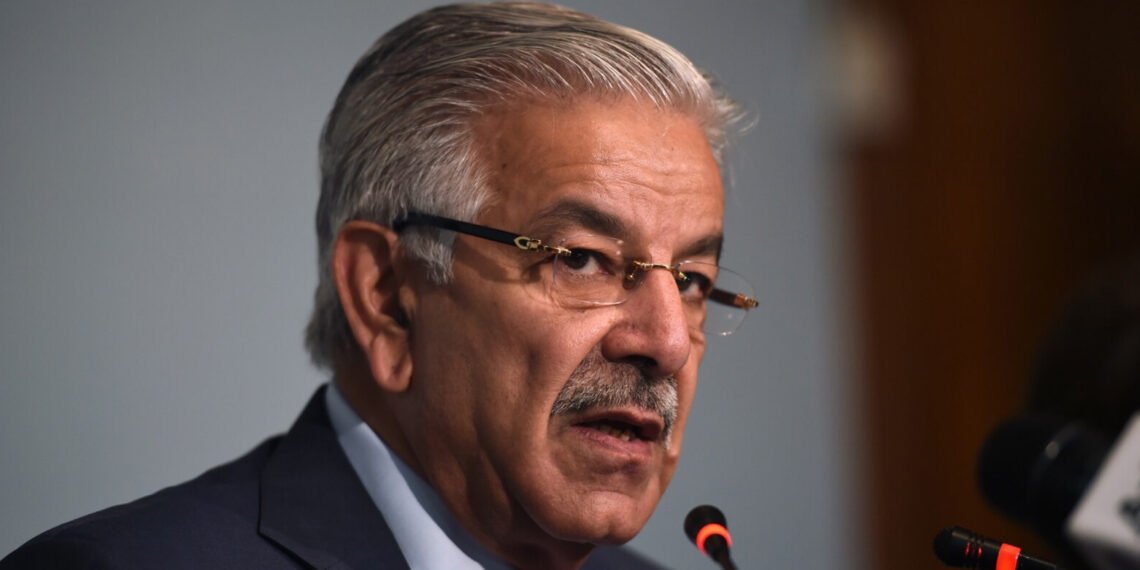Peace talks between Pakistan and Afghanistan in Istanbul have failed, having ended without agreement, with the sides trading blame for the breakdown in negotiations aimed at easing border tensions and upholding a fragile ceasefire.
The two-day talks in Istanbul, mediated by Turkey and Qatar, were the third round of peace negotiations that were viewed as one of the most significant diplomatic efforts between the two neighbors since the Taliban seized power in Afghanistan 2021.
Despite intense back-channel diplomacy, officials disclosed today, Saturday, November 8, 2025, that discussions stalled late Friday without tangible progress.
Pakistani Defence Minister, Khawaja Asif told a news channel late Friday that the “talks are over” and that the Pakistani delegation was returning home with “no plan for any future meetings.” He added that the ceasefire would remain in place as long as “it is not violated from the Afghan side.”
Asif said the Afghan delegation came “without any program” and refused to sign a written agreement, insisting only on verbal assurances.
“They said they would respect a verbal agreement, but there is no room for that. There is no plan or hope for any fourth round of talks. Talks have entered an indefinite pause.”
Khawaja Asif
Tensions have escalated in recent weeks following deadly border fighting that killed dozens of soldiers and civilians. The violence erupted after explosions in Kabul on October 9, which Afghanistan’s Taliban government said were drone strikes conducted by Pakistan and vowed to avenge. The clashes subsided after Qatar brokered a ceasefire on October 19, which remains tenuously in place.
Earlier this month, Pakistan’s military said it carried out airstrikes on the hideouts of the Pakistani Taliban inside Afghanistan, killing dozens of people it described as insurgents. Afghan officials denied the claim, saying civilians were among the dead, and said Afghan forces had struck Pakistani military posts in retaliation, killing 58 soldiers. Pakistan’s military acknowledged losing 23 troops in the fighting.
The violence prompted Qatar to invite delegations from both sides to Doha, where they agreed to a ceasefire on Oct. 19. It was followed by six days of talks in Istanbul, which resulted in an agreement to extend the truce and hold a third round on Nov. 6 and 7; talks that ultimately failed to produce any breakthrough.
Afghanistan Blames Pakistan For Talks Failure
Afghanistan’s government Spokesman, Zabiullah Mujahid, blamed Pakistan for the talks’ failure.
Mujahid said in a statement published on social media this morning that the two days of talks were conducted in good faith, with the Taliban expecting Islamabad to “present realistic and implementable demands to reach a fundamental solution.”
“During the talks, the Pakistani side attempted to refer all responsibilities regarding its security to the Afghan government, while at the same time it did not demonstrate any willingness to assume responsibility for either Afghanistan’s security or its own.”
Zabiullah Mujahid
Mujahid claimed that Pakistan exhibited “irresponsible and non-cooperative attitude” which meant that there was “no outcome” from the talks.
At a news conference later on, Mujahid asserted that Pakistan’s demands in the negotiations were “unreasonable and the talks could not proceed, the meeting ended and the talks are at a standstill for now.”
Mujahid said that Afghanistan does not want insecurity in the region, and entering into war is not itsfirst choice but he noted that “if war breaks out, we have the right to defend ourselves.”
Earlier, he had reiterated in the written statement that Afghanistan “will not allow anyone to use its territory against another country, nor permit actions that undermine its sovereignty or security.”
Pakistan has repeatedly accused Afghanistan’s Taliban rulers of harboring the Tehreek-e-Taliban Pakistan (TTP), a militant group responsible for a surge in attacks inside Pakistan since 2021. Kabul denies the charge, saying it does not allow its territory to be used against other countries.
Although separate from Afghanistan’s ruling Taliban, the TTP is closely allied with it and has been emboldened since the Taliban’s 2021 takeover of Kabul.
Nonetheless, Mujahid stressed that the ceasefire has not been violated by the Taliban, and will continue to be observed.
READ ALSO: Denmark Announces Political Agreement To Ban Social Media Access For Children Under 15























